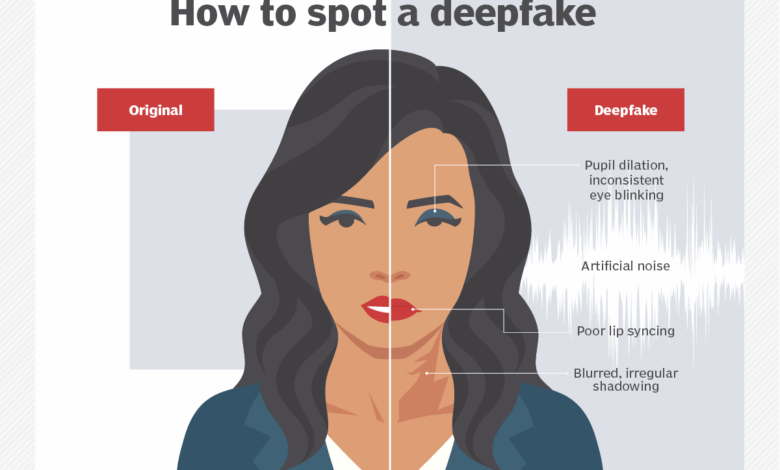Quick Reads
Quick Read: Countermeasures and Detection of Deepfakes

As deepfake technology advances, so do the methods to detect and counter them. This section explores the current state of deepfake detection and prevention strategies.
A. AI-Powered Deepfake Detection Tools
1. Machine Learning Approaches
- Researchers are developing AI models trained on large datasets of real and fake videos to identify telltale signs of manipulation.
- Example: Facebook, in collaboration with Michigan State University, developed a method to reverse-engineer deepfakes to their source generative models, helping to identify the origin of manipulated media.
2. Biological Signal Detection
- Some detection methods focus on identifying subtle biological signals that are hard to fake, such as heart rate detected through imperceptible skin color changes.
- A team from Binghamton University developed a tool that detects deepfakes by analyzing blood flow in video footage.
3. Commercial Solutions
- Companies like Deeptrace and Sentinel are offering AI-powered deepfake detection services to businesses and organizations.
- Microsoft’s Video Authenticator tool analyzes videos and images, providing a percentage chance of artificial manipulation.
B. Digital Watermarking and Blockchain Verification
1. Content Credentials
- Adobe’s Content Authenticity Initiative promotes the use of cryptographic signatures to verify the origin and editing history of digital content.
- This approach allows creators to attach tamper-evident metadata to their work, creating an audit trail for authentic content.
2. Blockchain-Based Solutions
- Startups like Truepic are using blockchain technology to create verifiable records of when and where photos and videos were taken.
- These solutions aim to establish a “chain of custody” for digital content from the moment of capture.
3. Camera-Level Authentication
- Some proposed solutions involve building authentication directly into camera hardware.
- Example: Canon has developed a system for its cameras that embeds digital signatures into images at the point of capture.
C. Media Literacy Education
1. Critical Thinking Skills
- Educators and media literacy advocates are emphasizing the importance of critical thinking skills in the age of deepfakes.
- Programs focus on teaching people to question the source of information, look for contextual clues, and cross-reference with trusted sources.
2. Public Awareness Campaigns
- Organizations like the News Literacy Project are running campaigns to raise awareness about deepfakes and other forms of misinformation.
- Government initiatives, such as the U.S. Department of Homeland Security’s “Be Cyber Smart” campaign, include guidance on identifying and responding to deepfakes.
3. Professional Training
- Journalists and other media professionals are receiving specialized training to identify and report on deepfakes.
- The Reuters News Agency, for example, has developed a course on identifying manipulated media as part of its newsroom training.
Challenges and Limitations
- Arms Race: As detection methods improve, so do the techniques for creating more convincing deepfakes, leading to an ongoing technological arms race.
- Accessibility: Many advanced detection tools are not readily available to the general public, creating a gap in protection.
- False Positives: Some detection methods may incorrectly flag authentic content as fake, potentially causing unintended harm.
- Processing Power: Real-time detection of deepfakes, especially in video calls or live streams, remains a significant challenge due to the computational power required.
While significant progress has been made in deepfake detection and prevention, the rapidly evolving nature of the technology means that no single solution is likely to be foolproof. A multi-faceted approach combining technological solutions, policy measures, and public education will be crucial in mitigating the risks posed by deepfakes.
This post is part of the “Quick read” series: The Rise of Deepfakes: When Seeing is No Longer Believing
Read in the same series:
- Deepfakes Creation Tools
- Real-Life Scenarios and Examples of Deepfakes
- Impacts of Deepfakes on Communities and Individuals
- Countermeasures and Detection of Deepfakes
- The Future of Deepfakes





